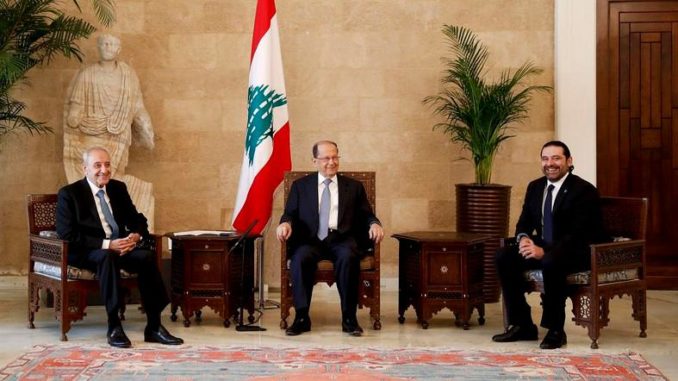
Lebanon needs to implement “painful” reforms, especially to tackle its large debt burden and in its energy sector, or face an economic crisis, the European Bank for Reconstruction and Development (EBRD) was quoted on Monday as saying.
Lebanon has one of the biggest public debt burdens in the world, equivalent to about 150 percent of gross domestic product (GDP).
Prime Minister Saad al-Hariri’s government has pledged urgent reforms to bring the state deficit under control.
“The reforms will be painful, but the alternative is more painful,” a finance ministry statement said, quoting EBRD first vice president Jurgen Rigterink after he met Lebanese Finance Minister Ali Hassan Khalil.
“The economic indicators now point to an impending crisis,” said Rigterink, according to the Finance Ministry.
“We at the EBRD feel that there is a need for important, bold reforms, especially in terms of correcting the general fiscal situation and energy,” he added.
Hariri has pledged to reduce the government’s state deficit as a proportion of GDP by 5 percent over five years.
However, his government only took office in late January after nine months of political arguments over the composition of the new coalition cabinet, delaying the reforms.
Last week, a senior World Bank official said its reforms “do not rise to the expected level” yet.
The government has not yet agreed a 2019 budget.
Lebanese leaders and international institutions agree that a decades-old electricity crisis is the most urgent area requiring attention. The crisis adds $1 billion-$1.5 billion to spending each year and accounts for about 40 percent of the public debt.
On Monday, Hariri’s office said he had chaired a meeting of a cabinet committee studying a plan to resolve the electricity crisis.
The EBRD, founded after the Cold War to help Eastern Europe switch to capitalism, has rapidly expanded into the Middle East in recent years. Rigterink said it supports several projects in Lebanon, with investments of $244 million last year.
The EBRD and the World Bank were among international donors that pledged $11 billion in aid and soft loans to help Lebanon improve infrastructure at a meeting in Paris a year ago, making the money contingent on reforms.
BY AL ARABIYA NET
